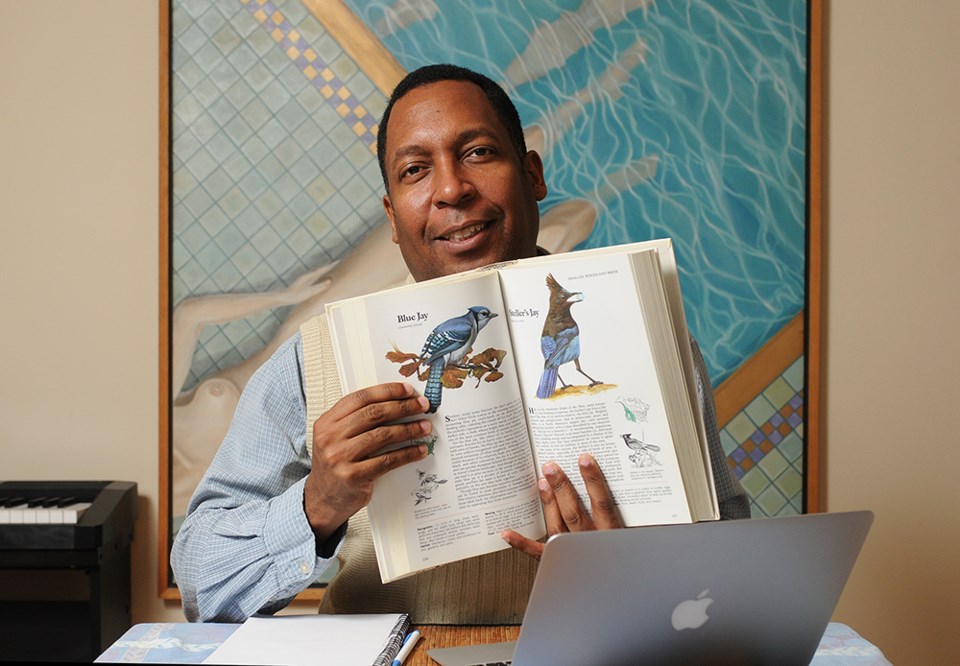A Vancouver author is on a mission to have a new word added to the dictionary. Robert Joseph Greene is petitioning Merriam-Webster Dictionary to define “jabber” as a group of jays.
“I assumed that jabber of jays was already in existence so I googled it and found out it wasn’t a grouping,” said Greene, author of gay romance fiction. “They’re either a party or a scold of jays.”
Greene said he was working on a piece of writing over the summer and he emailed Merriam-Webster in June to inquire about adding a word to the dictionary. Greene said Merriam-Webster told him he needed to gather popular support for “a jabber of jays” by encouraging other people, especially writers and editors, to use the word.
Greene said Canadian Authors Association B.C. branch president Margot Bates sent out an email of support to the association’s membership.
After contacting the Society of Canadian Ornithologists, Greene published a short article arguing for the use of jabber in the June 2013 issue of Picoides, the society’s birding news bulletin. Greene also contacted the American Ornithologists’ Union and received an email from president Susan Haig encouraging him to keep using jabber to help it spread in popularity.
“I haven’t heard anyone from the writers association or the ornithologists saying they were against it,” Greene said.
George Clulow, president of British Columbia Field Ornithologists, said he hadn’t heard the used “jabber” used to define a group of jays.
“It’ll probably be a topic of minor discussion I would think, it’s not going to be a high order thing.” Clulow said. “Birders use collective names but they’re much interested in which jay it is rather than the collective noun.”
Kory Stamper, associate editor at Merriam-Webster, told the Courier words need to meet three criteria to be added: widespread, sustained and meaningful usage.
“He said he’s got 130 examples of use,” Stamper said. “We usually are looking at thousands and thousands of citations when we enter a word.” A word generally needs to be in use for 10 to 15 years before it is added to the dictionary, Stamper said. “He’s not likely to see it in the dictionary any time in the next two, three, four, maybe even five years,” Stamper said.
Stamper said the Merriam-Webster Collegiate Dictionary, one of the company’s smaller dictionaries, has between 50 and 150 new words added each year within 100,000 editorial changes.
Greene said he was told by Merriam-Webster the popularity of The Hunger Games novels and movies and the word “jabberjay,” invented by author Suzanne Collins to describe a fictitious mutant bird, was a concern for changing the definition of jabber.
“I had an interesting discussion with them because now, in The Hunger Games, there is the jabberjays and they’re fearful that this would be conflict with a popular term from a movie,” Greene said.
Stamper said the email Merriam-Webster sent in response to Greene’s inquiry did not mention jabberjays or The Hunger Games.
Greene said he submitted an article to the British Ornithologists’ Union for publication in IBIS, an avian science journal a few days ago. He said he plans to go back to Merriam-Webster after it is published.
And if that doesn’t work?
“I’m going to go to Oxford Dictionary,” Greene said.



